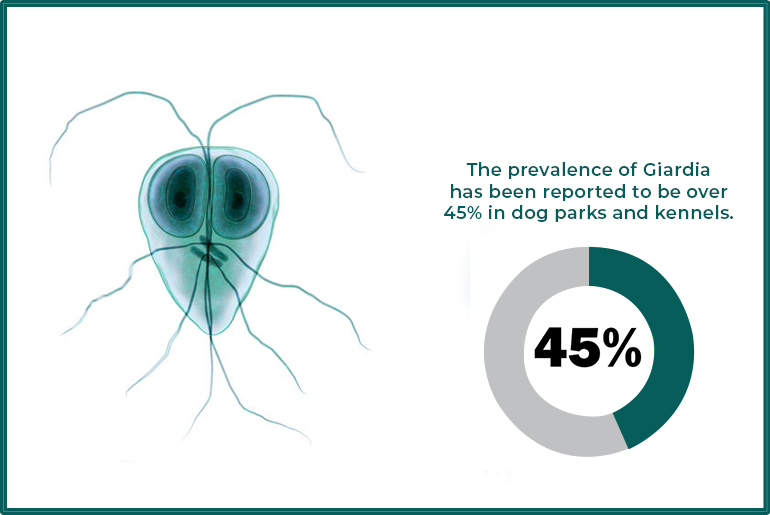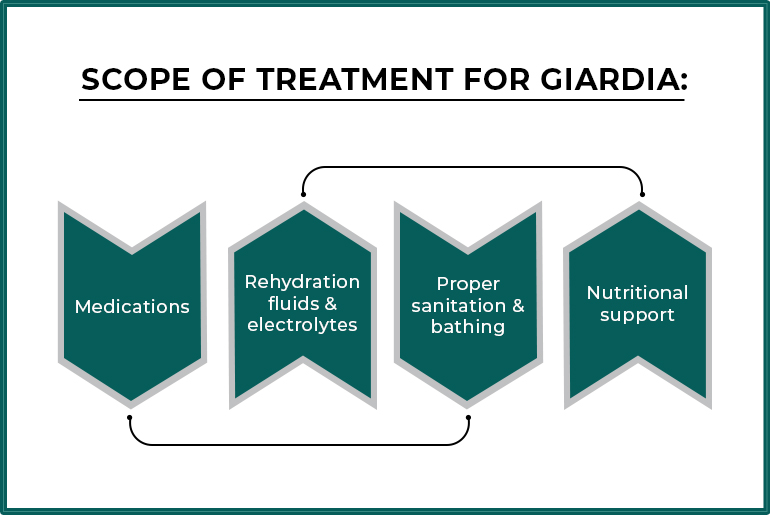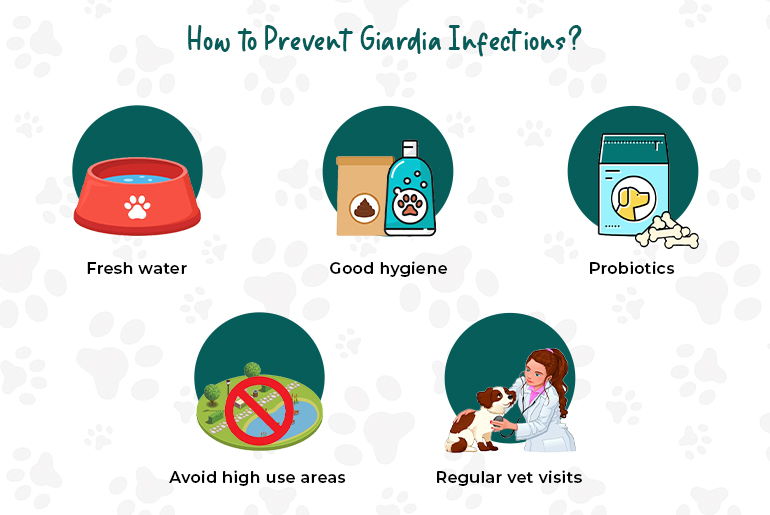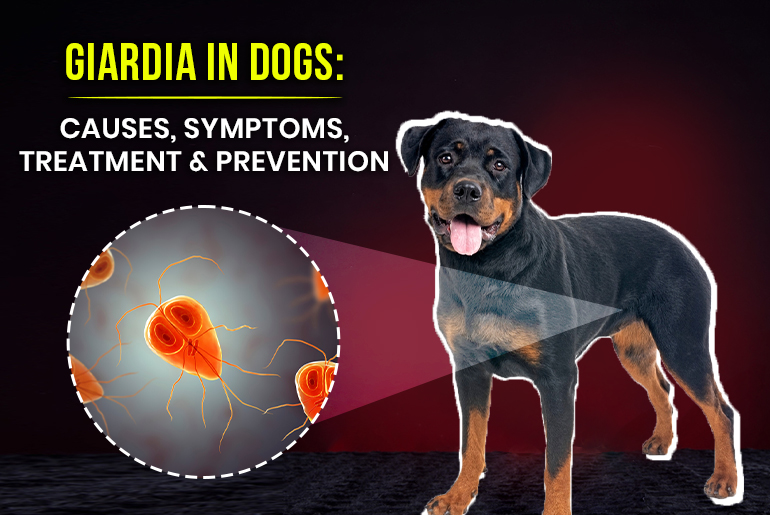Giardia is a protozoan parasite responsible for causing giardia infections (giardiasis) in dogs. It may even be present in the poop of a healthy-looking dog, and the progression of the disease may result in severe gastrointestinal problems. By understanding the symptoms, causes, prevention, and treatment of giardia, pet parents can take proactive measures to protect their dogs and prevent the spread of the disease to other pets or even humans.

This blog aims to spread awareness of giardia to help dog parents seek timely veterinary care and ensure the well-being of their beloved pets.
What Causes Giardia in Dogs?
Giardia is a protozoan parasite that infects your dog’s intestines. Unlike worms, it is not visible in the feces, as it is a microscopic, single-celled organism similar to bacteria. The disease is most commonly transmitted through contaminated food or water that carries giardia cysts. These cysts are robust and infective stages that can later mature into trophozoites. A rise in the population of trophozoites may lead to severe intestinal damage.
Giardia in dogs is transmitted in one of the following ways:
- Eating food contaminated with giardia cysts
- Drinking feces-contaminated water
- Grooming a dog’s fur with traces of feces containing giardia
- Sniffing the hind legs of an infected dog or cat, which may have giardia cysts
- Licking on surfaces contaminated with giardia cysts
- Playing in the ground or soil with the feces of an infected animal
What are the Symptoms of Giardia in dogs?
It is important for pet parents to know the common symptoms of the infection, as it can help them seek timely veterinary treatment as necessary. However, some dogs infected with Giardia may not show any symptoms at all.
Some of the most commonly exhibited symptoms of giardiasis are:
- Chronic or intermittent diarrhea
- Poorly formed feces
- Feces with mucus
- Vomiting
- Weight loss
- Lethargy
- Dehydration
- Poor coat appearance
- Foul-smelling gas
- Abdominal discomfort
- Microscopic intestinal lesions
How is Giardia Treated?
Giardia infections in dogs are typically treated based on the clinical symptoms diagnosed by a veterinarian and by treating the parasite with effective antibiotics. One must follow the prescribed treatment regimen to ensure the complete elimination of the parasite.

Scope of Treatment:
1. Medications:
Dogs with giardiasis are mostly prescribed a five-day course of antibiotics like metronidazole or with an effective anthelmintic like fenbendazole which is present in dewormers like Panacur or Antezole.
2. Rehydration fluids and electrolytes:
The most common effect of giardia is diarrhea, which leads to fluid loss. This may cause an electrolyte imbalance, which can be managed using proper rehydration and electrolyte balance therapy.
3. Proper sanitation and bathing:
Bathing with a dog shampoo on a regular basis removes any fecal material on the fur containing the giardia cysts that can further infect animals and humans. Wash your hands properly after handling dog feces.
4. Nutritional support:
Your veterinarian may recommend a special diet that includes high fiber content and other nutrients to resolve the episodes of diarrhea and help the dog regain lost weight. Moreover, probiotic supplements like Pro-Kolin can help balance the disturbed gut microflora in infected dogs.
[Also Read] Acute Diarrhea in Dogs : Symptoms And Treatments
How to Prevent Giardia Infections?
It is quite not possible to ensure that the food or water that your pet drinks is free from giardia organisms or that the surroundings your pet plays in are completely devoid of them. Therefore, you can only try to avoid the pet’s exposure to these parasites.

By implementing these preventive measures, pet parents can significantly reduce the risk of their dogs contracting Giardia:
- Ensure that your dog has access to clean, uncontaminated water sources.
- Don’t let your dog drink water from puddles, ponds, or untreated streams.
- Practice good hygiene by promptly cleaning up your dog’s feces.
- Dispose of the feces properly, especially when in public places.
- Minimize your dog’s contact with areas that may have feces on the ground.
- Incorporate probiotics and digestive supplements into their diet to maintain gut health.
- Seek regular veterinary consultations to detect the disease early.
[Also Read] Tips for A Successful Online Vet Consultation
Bottom line
Giardia can be dangerous for dogs, especially if left untreated. While some dogs may not show any symptoms, others can experience diarrhea, vomiting, weight loss, and dehydration. Prolonged giardia infection can damage their digestive health and weaken their immune system and overall health. Moreover, giardia is contagious and can spread to other pets and even humans. Therefore, being vigilant about the vulnerability of the disease can save you and your furry friends from possible dangers.





